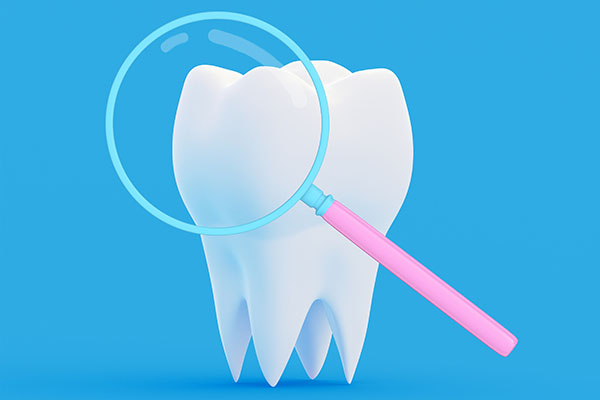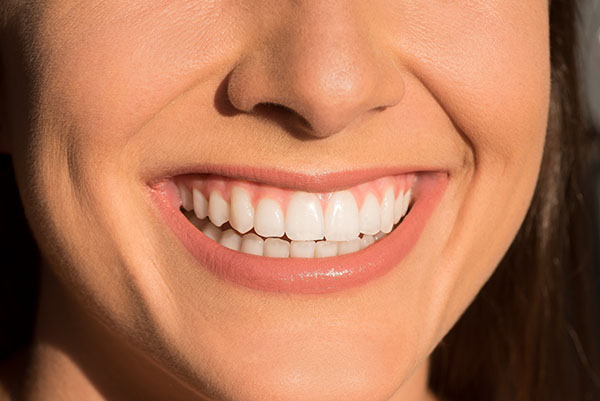4 Tips to Prolong the Longevity of Dental Bonding

One of the options to fix teeth imperfections such as chips, cracks, discolorations, and slim gaps is dental bonding. This procedure typically only takes 30 to 60 minutes, and it can greatly improve one's smile. However, teeth bonding does not last forever. It typically needs to be replaced every 10 years or so, although replacement may be required sooner if the teeth are not taken care of properly. If you have dental bonding, there are certain things you can do to extend the life of the bonded teeth.
Tips to prolong the lifespan of dental bonding
Dental bonding is used to cover up certain imperfections, although the material is also used for tooth-colored fillings. During the procedure to cover up the front of the teeth, a thin layer of resin is applied to the tooth and hardened with a laser or UV light. The material used for bonding is durable and stands up well to daily chewing and biting. However, certain things can cause the material to wear down or chip.
1. Practice good oral hygiene
Just like with your natural teeth, it is important to brush and floss your bonded ones. This should be done at least twice a day. You should also visit the dentist every six months to make sure everything looks good and to get a professional cleaning to remove tartar and plaque that have built up.
2. Stop smoking
There are many reasons to stop smoking, and prolonging the longevity of dental bonding is one of them. The nicotine from cigarettes, cigars, and chewing tobacco stains the bonded teeth and turns them a yellowish-brownish color. Whether it is using a nicotine patch or going through a cessation program, stopping this habit is beneficial in many ways.
3. Limit stain-causing foods and beverages
Along with smoking, there are numerous things that cause bonded and natural teeth to stain and discolor. Common culprits include red wine, coffee, colas, and black tea. Certain foods, such as dark-colored berries, are also tough on the teeth.
It may be hard to completely avoid stain-causing things, but try to limit them. To reduce the chances of staining, swish water around the teeth after drinking coffee, wine, or tea. If at all possible, brush right after you are done consuming a dark-colored beverage.
4. Stop bad habits
Although dental bonding can withstand most types of food, it can break on hard items. If you chew on pens, nails, or ice, or if you have a habit of trying to open packages or bottles with your teeth, you should stop. If you do not, there is a good chance you will be visiting the dentist to have your teeth repaired or replaced.
Good candidates for the procedure
One of the most important factors that determine whether or not a patient is a good candidate for dental bonding is their willingness to comply with the recommendations for proper home care. However, there are other requirements you must meet before your dentist will move forward with this type of treatment.
First, the damage to the tooth must be cosmetic in nature or otherwise relatively minimal. Teeth that are irregularly shaped or discolored are some of the most common reasons a patient will choose dental bonding. Minor chips and cracks can also be repaired using this technique. However, if the damage to the tooth is extensive, and requires more than a surface-level repair, other treatments may be required.
The affected teeth and the surrounding gums must be in overall good health before the treatment begins. This means there can be no signs of untreated decay, infection, or disease. In some situations, a dentist can address these issues first and then apply dental bonding to the tooth.
Dental bonding can last for many years with proper care but it is not the most durable solution to an unsightly or damaged tooth. For this reason, dentists rarely use it for repairs on teeth toward the back of the mouth unless it is part of the process to fill a cavity. It is also not recommended for patients with severe bruxism, which is the habit of clenching or grinding your teeth. This can quickly damage dental bonding.
Conclusion
Dental bonding can improve your smile and self-confidence by covering up minor dental flaws. With proper care, it can last up to 10 years. Bonded teeth can handle normal wear and tear, but there are certain things that can damage them and require replacement.
Request an appointment here: https://www.johnscreekteeth.com or call Johns Creek Dentistry at (770) 623-1427 for an appointment in our Johns Creek office.
Check out what others are saying about our dental services on Yelp: Dental Bonding in Johns Creek, GA.
Recent Posts
Licensed dentists often recommend dental bonding to repair minor to moderate concerns with front visible teeth because the bonding material has many similarities with natural teeth. Dental bonding can protect the deeper layers of teeth, withstand the daily pressures teeth receive, and match the ideal shade of teeth.It is beneficial to understand how dental bonding…
Dental bonding is a great way to address oral health and cosmetic issues like damaged enamel and chipped or cracked teeth. Read on to learn more about dental bonding. Dental bonding is minimally invasive and considered safe for patients.Every patient should evaluate all available types of restorative dentistry to address their specific oral health concerns…
Dental bonding can address cosmetic and structural issues that affect teeth. The treatment involves applying a composite resin to the patient’s teeth and shaping the composite as needed. The composite blends in with the rest of the person’s teeth, which ensures that any repairs performed look natural.The process of dental bonding does not cause any…
Dental bonding is an effective restorative procedure for many dental issues, including tooth sensitivity. Read on to learn more about dental bonding. Dental sensitivity affects almost everyone at some point in their lives. Very hot or cold foods or liquids may cause a person’s teeth to become irritated. Knowing how to manage or approach sensitivity…


